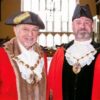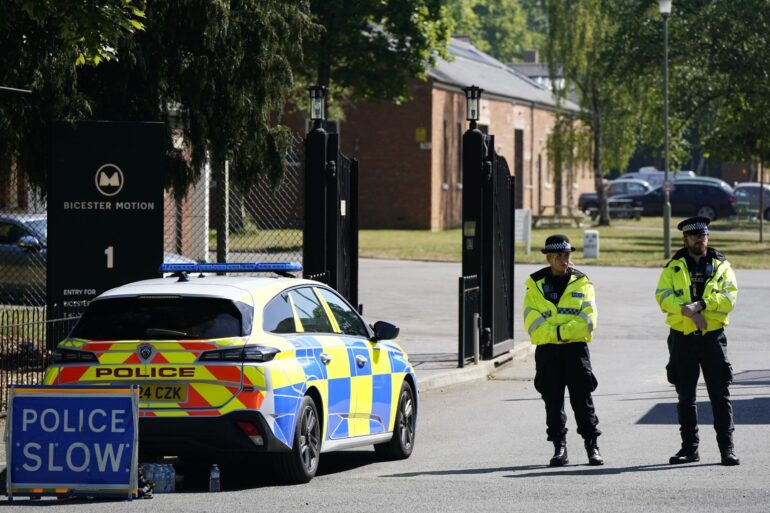-
 play_arrow
play_arrow
Kl 1 Radio Local radio for west Norfolk
-
 play_arrow
play_arrow
KL DISCO KL Disco Playing Disco Music from the 70's onwards.24/7
-
 play_arrow
play_arrow
KL COUNTRY KL COUNTRY Playing New and Classic Country Music 24/7
-
 play_arrow
play_arrow
KL ROX KL ROX The best of New and Classic Rock.24/7
-
 play_arrow
play_arrow
KL SUMMER Summer Vibes 24/7 from KL1 Radio across West Norfolk
-
 play_arrow
play_arrow
KL CLASSICAL Your Symphony Starts Here
-
 play_arrow
play_arrow
KL CHILL Just Chill!
-
 play_arrow
play_arrow
KL POP The Best POP Hits all day Long!
-
 play_arrow
play_arrow
KL XTRA KL XTRA
music_note

The remarkable career of the first black footballer to receive an England call-up is to be honoured with a national blue plaque.
John ‘Jack’ Leslie, who scored 137 goals in 400 appearances for Plymouth Argyle between 1921 and 1934, was called up to the national team in 1925.
But the inside-left (support striker) would be denied an England appearance because of the colour of his skin after selectors discovered his heritage.
The Argyle favourite died in 1988 and the plaque is being unveiled in his adopted home town of Plymouth.
The unveiling marks Leslie’s footballing talent and celebrates the 100th anniversary year of his call-up as a reserve for the England squad in October 1925.
Though this honour was rescinded shortly afterwards, Leslie’s resilience in continuing to excel at Plymouth Argyle and his significance in the history of English football has more recently been acknowledged and celebrated.
The new blue plaque will be unveiled at 8 Glendower Road in Plymouth where he lived with his family during the heyday of his career.
The inscription on the plaque reads: JOHN ‘JACK’ LESLIE 1901 – 1988 Captain of Plymouth Argyle FC and the first Black footballer selected for England lived here.
The unveiling will be led by Historic England’s chief executive Duncan Wilson, alongside Leslie’s granddaughters Lesley Hiscott, Gillian Carter and Lyn Davies.
In the history of black players in English football, Leslie was preceded by pioneering footballers such as Arthur Wharton, Walter Tull and Fred Corbett who had played for league teams before the First World War.
Among his contemporaries was Eddie Parris, who won a cap for Wales in 1931.
Following Leslie’s call-up in 1925, another 53 years passed before Viv Anderson became the first black player to play for England in 1978.
Three years ago, the FA presented his family with a posthumous cap and acknowledged that retraction of his call-up “should never have happened”.
After retiring from football, Leslie moved to east London and worked in the docks until his retirement.
He later got a part-time job cleaning boots and sweeping terraces at West Ham United’s stadium Upton Park.
In recent years, The Jack Leslie Campaign succeeded in raising £140,000 to erect a bronze statue to him outside Plymouth Argyle’s Home Park.
Leslie’s granddaughters said: “We feel honoured as members of Jack Leslie’s family that a blue plaque is being unveiled in recognition of his achievements.
“Our grandad made a major contribution to the history of not only football but the integration of black people into our communities.
“He was a true trailblazer, and we will always be immensely proud of him.”
Duncan Wilson, chief executive of Historic England, said: “Leslie’s story is not only about football, it is a testament to his resilience in the face of racism.
“The first black footballer called up to the England squad, Leslie’s call-up was rescinded, which seemed to be due to the racial prejudices of the time.
“While he never played for his country, Leslie’s story serves as an inspiration for current generations, to continue to challenge racial boundaries in sport.
“We hope this blue plaque helps celebrate his achievements and inspires future generations.”
Matt Tiller and Greg Foxsmith, co-founders of The Jack Leslie Campaign, added: “100 years ago, Plymouth Argyle’s Jack Leslie was a young newlywed with the world at his feet.
“He walked from this house to Home Park where he was given the fantastic news that is so significant in the history of our national sport.
“Jack had been picked for England, the first player of colour to be selected.
“He returned to Glendower Road to share that achievement with his new wife, Win.
“And it was here that he would later have to deal with that dream being snatched away.
“But he bounced back, helping Argyle win promotion and becoming team captain.
“It also became a family home after his daughter Evelyn came along in 1927.
“It is a wonderful moment to see Jack recognised and celebrated here with a blue plaque.”
Published: by Radio NewsHub

Similar posts
Upcoming shows

Chris Osler – Friday Afternoon Show
1:00 pm - 4:00 pm

Richard Dix – KL1 Drive
4:00 pm - 7:00 pm

emoviebox
7:00 pm - 8:00 pm

Richard Tree – Friday Folk
8:00 pm - 9:00 pm

Dave Setchfield – Nite KL1ub Part 1
9:00 pm - 10:00 pm
-

Two firefighters and a member of the public have died after a fire at a former RAF base in Bicester

Another casino for town and delays in opening public toilets concerning letter writers this week

New West Norfolk mayor elected for the coming year

Blunkett outlines once in a lifetime plan to fix railways in Yorkshire

A matter of life and death
Message Us
Copyright The Mediasite UK - 2025



